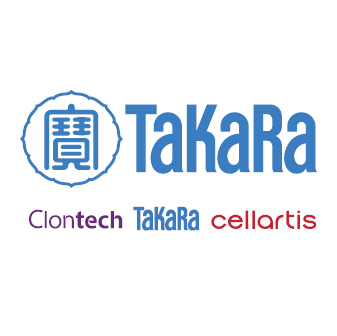DNA SMART ChIP-Seq Kit
DNA SMART ChIP-Seq Kit
DNA SMART ChIP-Seq Kit — Illumina® sequencing library preparation from low-input DNA templates
The DNA SMART ChIP-Seq Kit adds Illumina-specific sequencing adapters to the ends of DNA fragments in a ligation-independent manner. Generating libraries for ChIP sequencing (ChIP-seq) can be difficult due to the small amounts of DNA recovered from ChIP experiments, particularly when using antibodies against low-abundance transcription factors. The DNA SMART ChIP-Seq Kit uses a novel version of SMART template-switching technology—adapted for DNA templates—to generate next-generation sequencing (NGS) libraries for Illumina platforms from 100 pg–10 ng of input DNA. Either ssDNA or double-stranded DNA (dsDNA) from ChIP experiments can be used directly with this kit, making it compatible with DNA recovered with the ChIP Elute Kit or by other methods. This highly sensitive kit generates robust sequencing libraries from low-input DNA samples, with minimal handling, in about four hours.
Overview
- Fast (one hour) cross-link reversal and elution of ChIP DNA
- Ligation-independent adapter addition for ChIP-seq library preparation
- Flexible DNA inputs: 100 pg–10 ng of either ssDNA or dsDNA
- Generate Illumina-ready sequencing libraries in around 4 hours
There are three versions of this kit available:
- The DNA SMART ChIP-Seq Kit - 12 contains the reagents to generate up to 12 indexed libraries using a single forward indexing primer and 12 reverse indexing primers
- The DNA SMART ChIP-Seq Kit - 48 A can generate up to 48 indexed libraries using 4 forward indexing primers and 12 reverse indexing primers
- The DNA SMART ChIP-Seq Kit - 48 B can generate up to 48 indexed libraries using 4 forward indexing primers and 12 reverse indexing primers
Note: DNA SMART ChIP-Seq Kit - 48 A and DNA SMART ChIP-Seq Kit - 48 B use different sets of forward primers with different index sequences
Applications
- Sequencing library preparation for ChIP-seq from low-input, fragmented DNA
- Illumina-specific NGS sequencing library production
The DNA SMART ChIP-Seq Kit uses a combined size selection and clean-up step after library amplification by PCR

The DNA SMART ChIP-Seq Kit uses a combined size selection and clean-up step after library amplification by PCR. Compared to other protocols that perform size selection before PCR amplification, post-PCR size selection results in a higher yield while maintaining the quality of the libraries.
Performing size selection after amplification does not alter the quality of the data generated by the DNA SMART ChIP-Seq Kit

Performing size selection after amplification does not alter the quality of the data generated by the DNA SMART ChIP-Seq Kit. The location and shape of the peaks identified using post-PCR size selection still matched reported ENCODE data (Panel A). Electropherograms show the different libraries generated using pre- or post-PCR size selection (Panel B).
The DNA SMART ChIP-Seq Kit has the sensitivity to generate sequencing libraries from very small amounts of fragmented DNA

The DNA SMART ChIP-Seq Kit has the sensitivity to generate sequencing libraries from very small amounts of fragmented DNA. The number of unique, non-duplicate reads is high across all input levels, and the number of peaks identified is similar across input amounts.
Libraries generated with the DNA SMART ChIP-Seq Kit have high reproducibility

Libraries generated with the DNA SMART ChIP-Seq Kit have high reproducibility. The reproducibility between technical replicates was similar across input amounts (Panel A). The non-redundant rate (normalized for 10 million uniquely mapped reads) was well above the standard recommended by the ENCODE project (0.8) for inputs >0.5 ng (Panel B; error bars indicate the standard deviation of two technical replicates). Compared to the 4 ng library, the number of peaks were similar across lower input libraries (Panel C). The shape and location of the peaks was similar across input levels, and matched very well to ENCODE data (293 cells, anti-H3K4me3 antibody, U. Washington), even for as little as 50 pg input DNA (Panel D).


